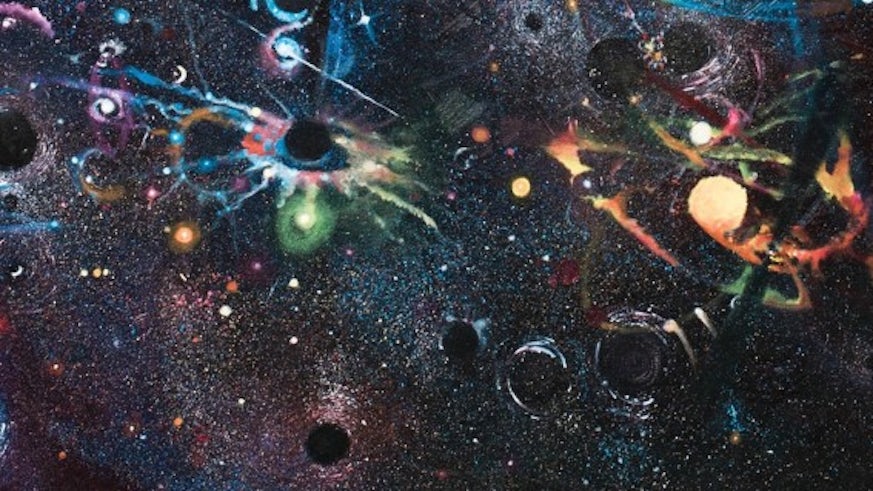Cardiff to host flagship UK astronomy event
19 June 2023

NAM2023 will reveal the latest astronomy findings amidst a programme of art and education events.
The UK’s astronomy community will gather at Cardiff University between July 3 and 7 for the space event of the year.
The Royal Astronomical Society (RAS)’s National Astronomy Meeting (NAM2023) is a showcase of the UK’s astronomy research as well as a series of engagement activities for the public and schoolchildren to learn about space science.
Hosted by the University’s School of Physics and Astronomy’s Cardiff Hub for Astrophysical Research and Technology and Gravity Exploration Institute, NAM2023 will include a number of key session talks and a local artist competition on this year’s theme of origins.
Professor Mike Edmunds, RAS President and Emeritus Professor at Cardiff University’s School of Physics and Astronomy, said: “I am absolutely delighted that the Royal Astronomical Society’s flagship meeting will be held in the capital of Wales this year. A very strong programme, both academic and outreach, is planned. It will be a real showcase for the latest results, future plans, fundamental discussions - and, I expect, some healthy disagreements!
“One of the great strengths of astronomy is that anyone interested can, to a remarkable extent, share in the excitement of new discoveries and new interpretations. Cardiff University’s reputation in astronomy and astrophysics has blossomed in the last fifty years, and I am really looking forward to this celebration of our science!”
Cardiff University astronomers will share their research as part of the conference, ranging from a review of continuing analysis and interpretation of observations of the Herschel Space Observatory (2009-2013) - the first large aperture far infrared and submillimetre space observatory - to the latest findings from current technology, including ALMA (Atacama Large Millimeter/Submillimeter Array), the most powerful telescope for observing the cool Universe.
Professor Haley Gomez, Deputy Head of the School of Physics and Astronomy, said: “We’re delighted to be welcoming over 750 friends and colleagues from across the UK and beyond to Cardiff University for this leading astronomy conference.
“As one of the largest UK astronomy departments, with world-leading instrumentation, we have lots to offer and so we’re looking forward to hosting what promises to be a memorable event of academic discussion and debate together with an exciting programme of public outreach and engagement activities for everyone to enjoy.”
Recent gravitational wave findings from the LIGO (Laser Interferometer Gravitational -Wave Observatory), Virgo and KAGRA detectors will be revealed as well as a look at its potential future techniques in an attempt to detect real-time gravitational wave transients.
Public engagement activities include an Astro Pop-up Stall with a Space Quest scavenger hunt in St David’s Dewi Sant shopping centre on Saturday June 24, a series of Astronomy on Tap pub nights, and an AstroArt ORIGINS competition, in which the public is invited to vote for their favourite artwork inspired by the themes of space and origins.
NAM2023 will culminate on July 6 with a Celebration Space evening event at the University’s Centre for Student Life (CSL). A free, family event, Celebration Space includes an array of story-telling activities, art exhibits, 3D cinema showings and a panel event led by Professor Chris Lintott, presenter of the BBC’s Sky at Night programme, about how space and astronomy benefit society.
As well as astronomers, NAM2023 also welcomes the UK Solar Physics (UKSP) and Magnetosphere Ionosphere and Solar-Terrestrial (MIST) communities.
Capacity for in-person attendance has already been reached, making it RAS’ largest ever turnout for its annual event.
For more information, see the NAM2023 website and follow @CardiffPHYSX, @NAM2023_Cardiff and @AoT_Cardiff on social media using the hashtag #NAM2023.